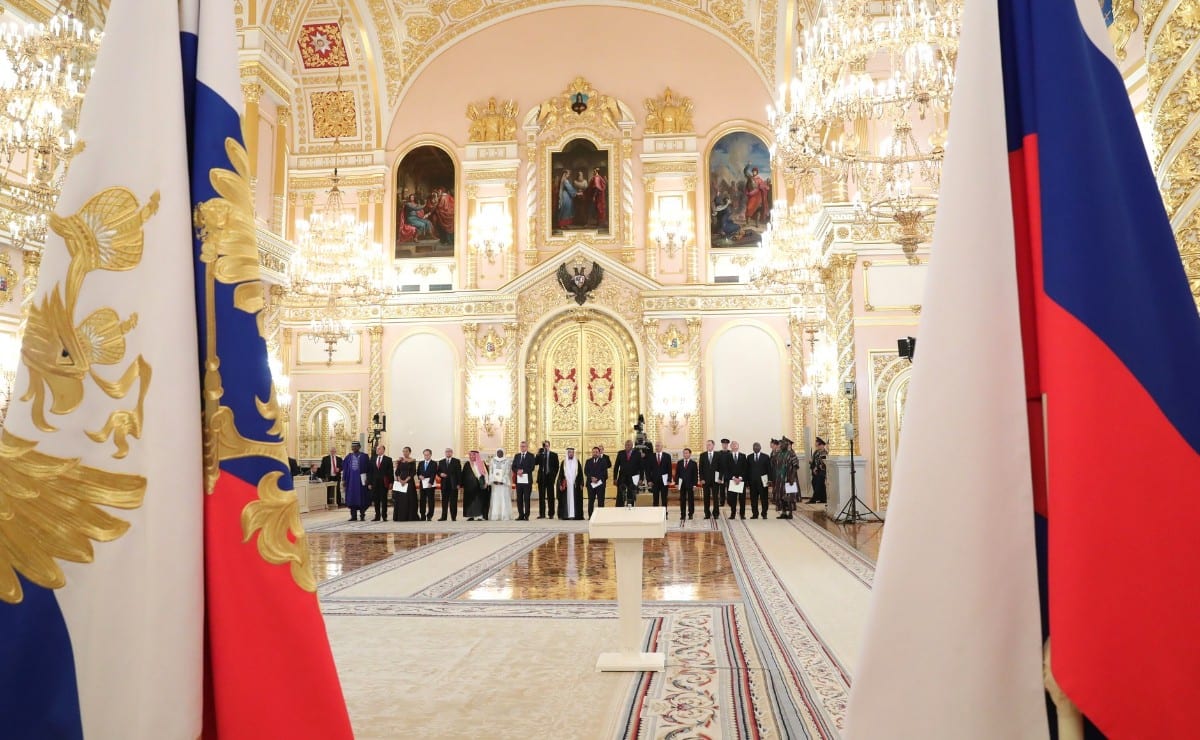 Courtesy: Russian Government
Courtesy: Russian Government
Russia’s Perspective: A Pull-Out of the Donbass
To suggest that tensions between Russia and Ukraine continue to rise would be an understatement. With Ukrainian protests over gas prices in struggling municipalities, sham elections in the Donbass, and increased militarization of the Azov sea, Ukraine faces a series of challenges that continue to prolong its entanglement with Russia. In case anyone expected the idea of a UN Peacekeeping mission to result in a Russian withdrawal, it is safe to say the Russians are not backing down. In fact, the events in the Azov sea signal the opposite of de-escalation. Regardless, the failure of the Minsk II Agreement and other proposals force the international community to reevaluate what is at stake and what the players sitting around the table want.
In Ukraine’s case, it is simple. Ukraine wants Russia to return its sovereign territory and be a part of western institutions such as NATO and the EU. From a Russian perspective, to agree to these terms entails a variety of high cost concessions. Here are the reasons why:
- To cease the Russian occupation of Ukrainian territory is akin to giving up its buffer zone.
The possibility of losing Ukraine to western institutions was enough to spark a Russian intervention in Ukraine. Pulling out of the Donbass would mean losing the only leverage they possess over Ukraine, both soft and hard power wise. Pulling out of the Donbass would also demonstrate to other post-soviet states that they, too, are free to drift away from Russia’s influence. Russia is not willing to give post-soviet states the benefit of the doubt on whether they will drift from its influence, as its great power aspirations do not allow room for error. Therefore, Russia believes these states will drift from its influence, and it is only a matter of time until they do so. Essentially, pulling out of Donbass would mean relinquishing its self-designated sphere of influence. Thus, getting Moscow to pull out would require large concessions.
2. Russia does not believe Ukraine wants to be free from its sphere of influence.
Frequently, Russia idealizes its historical relationship with Ukraine. President Vladimir Putin has stated Russians and Ukrainians are one people; in Moscow’s eyes, the Ukrainian and Russian people share history and religion. Russia sees itself as Ukraine’s older brother and believes the Ukrainian government is manipulated by Washington. Smaller nations do not dictate their own paths in the international arena, but rather the ruling powers organize smaller nations in a way they see fit. According to Russian analysts, ruling powers also manipulate international institutions.
3. Russia’s domestic public is watching.
For Russia, the war in Ukraine has been costly, and the country has endured severe sanctions because of its actions. Regardless, the majority of Russians still view Ukraine in a deeper negative light than the U.S. or the European Union after four years. Earlier in March, 70% of Russians believed Russia’s annexation of Crimea was good for the country. In the eyes of the Russian elite, this means that in any diplomatic solution, Russia must save face and come out as a victor of sorts.
Overall, Russia has presented several proposals for Eastern Ukraine. The first proposal was armed U.N. Peacekeepers to hold the ceasefire line between Russian backed forces and Ukrainian forces. Let us keep in mind that any proposal involving a peace-keeping force still assures Moscow’s control in Donbass and a stalemate in the conflict. Another rejected proposal involved a referendum in the eastern regions of Ukraine, where the conflict is still ongoing. Meaning, Moscow continues to seek validation for its illegal incursion in Ukraine. From the Russian side, numerous Russian analysts have proposed a Finlandization of Ukraine which would require Ukraine to give up its NATO aspirations, a sacrifice that is currently unacceptable to the Ukrainian public. Perhaps one of the most radical and controversial solutions to get Moscow to the table would be the recognition of Crimea in exchange for pulling out of Donbass, cheap natural gas prices, and shutting down plans for Nord Stream II.
In conclusion, as the war in Ukraine continues, the number of favorable options for Ukraine diminish. Regardless, the reality of the matter is that Russia cares more about Ukraine than NATO or the European Union does. Russia believes it has far more to lose in any dealings that involve Ukraine, and that is crucial to understand when crafting solutions to the Ukrainian conflict.





